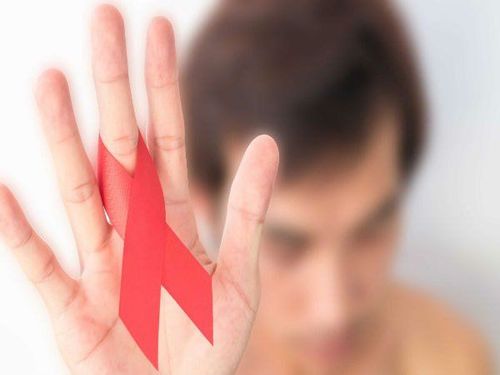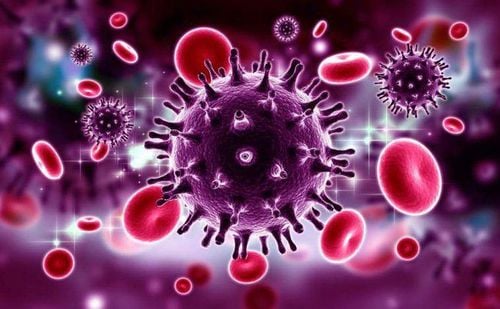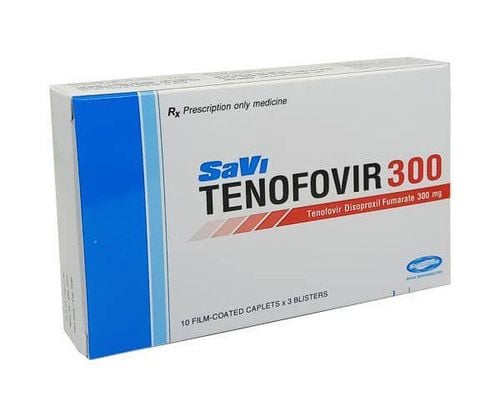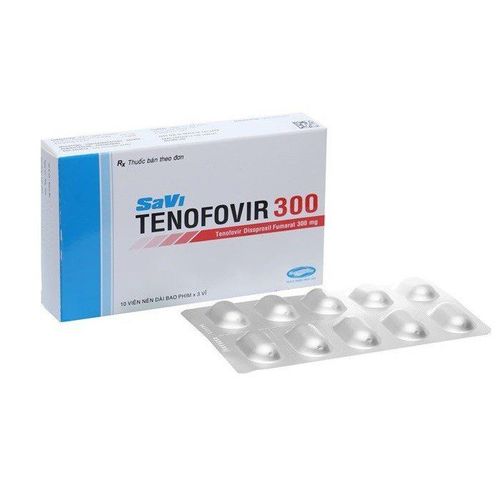This is an automatically translated article.
HIV is a virus that causes human immunodeficiency. The disease usually presents with symptoms through different stages. Knowing the stages and symptoms of the disease can help with early treatment, increasing life expectancy and reducing the risk of infecting others.
1. What is the window period for HIV?
HIV window period is the time between actual HIV infection and HIV detection by tests. It usually takes 3-6 months for a person infected with HIV for the body to produce enough antibodies to fight the virus. Especially during this time, you can still transmit HIV to others.
2. How is HIV transmitted?
HIV, also known as AIDS, is a disease of the immune system, caused by the human immunodeficiency virus. HIV is most commonly transmitted in the following ways:
2.1 Through blood Injecting drugs, sharing needles and syringes Transfusion of blood, or blood products without screening, Sharing sharp instruments (eg tattoo equipment) 2.2 Sexual intercourse Oral, anal, or vaginal sex without using protection (eg condom) Promiscuous sex with many others together. Having sex with someone who has HIV 2.3 Mother-to-child transmission During pregnancy, labor or childbirth Through breast milk However, you cannot get HIV through the following activities:
Getting Started holding hands, hugging, kissing, sharing food with people with HIV Cough, sneezing Mosquito bites and insect bites.

HIV có thể lây qua đường quan hệ tình dục
3. Symptoms of HIV through stages
3.1 Early stage (window period): Acute HIV infection HIV infection usually occurs by transferring bodily fluids from an infected person to the body of an uninfected person. This stage is when the viruses causing the patient to multiply rapidly, resulting in more virus in the peripheral blood. HIV levels can reach several million virus particles per milliliter of blood.
During the HIV window period, an infected person may develop flu-like symptoms or mononucleosis 2 to 4 weeks after the virus begins to spread in the body.
Common symptoms include fever, rash, swollen glands, sore throat, muscle pain, malaise, fatigue, mouth and esophageal sores. Some of the less common symptoms include headache, nausea, vomiting, swelling of the spleen and liver, weight loss, thrush, and neurological symptoms. The duration of symptoms is different for each person, the average will be about 28 days and the shortest is 1 week.
However, not everyone experiences the above symptoms, there are some people who do not have any symptoms during this stage. Even when a patient goes to the doctor, they can be misdiagnosed as one of these common bacterial infections with similar symptoms and signs. Therefore, you should go for regular tests to detect the disease in time to prevent the infection from spreading to others.
3.2 Second Stage: Chronic HIV Infection After your immune system loses the battle to HIV, flu-like symptoms should also go away. Doctors call this the asymptomatic latent or clinical stage. Most of the time, in this stage, the patient does not have any symptoms. You also may not realize you have been infected or can pass it on to others. The chronic phase usually lasts 10 years or more.
During this time, untreated HIV kills CD4 T-cells (cells that act as "guardians" that fight against pathogens) and destroys the immune system yours. In most, a normal CD4 cell count is between 450-1400 cells per microliter. If the disease is not treated in time, the number of CD4 cells will drop, making your resistance weaker, making it easy to get other infections.
Besides, when the amount of HIV virus in the blood increases rapidly, the risk of transmitting the virus to others also increases. It is important not to let this stage go on for long. If you start taking HIV medicines during this period, they can help fight HIV, rebuild your immune system, and stop the spread of the virus. If you're on medication, see your doctor regularly and develop healthy habits for a healthier, more productive life.
3.3 End stage: AIDS In late stage AIDS usually presents some of the following symptoms:
Constant body fatigue Swollen lymph nodes in neck or groin Fever lasting more than 10 days Night sweats Decreased night sweats unexplained weight Brown spots on your skin that don't go away Shortness of breath Severe, persistent diarrhea Yeast infections in the mouth, throat, or vagina Unexplained bruising or bleeding People with AIDS who don't take medication only live about 3 years, even less if they develop dangerous infections. But HIV can still be treated at this stage. If taking HIV medication follow your doctor's advice about other conditions you may have, with the right treatment and a healthy lifestyle you can live longer.

Những người bị AIDS không dùng thuốc chỉ sống được khoảng 3 năm, thậm chí ít hơn nếu họ bị nhiễm trùng nguy hiểm.
4. Treatment for people living with HIV
Currently, there is no vaccine that can prevent HIV infection and no therapy that can completely eliminate the HIV virus from the body. However, the good news for people living with HIV can prolong and improve quality of life with antiretroviral therapy, called ART (Antiretroviral Therapy).
ART is a therapy that uses antiretroviral drugs to help slow HIV replication in the body, increase immunity and reduce the risk of opportunistic infections.
Depending on the medical condition of each person, the doctor will recommend appropriate ARV regimens, as long as the effectiveness of the treatment is guaranteed.
However, like any other medicine, ARVs can cause side effects for some people. These symptoms are usually mild and go away quickly after a few weeks. Side effects include:
Nausea, vomiting Headache Diarrhea Or nightmares Fatigue. Early HIV testing helps control and prevent infection. This is very important to help people living with HIV know their status if they are in the window period, contributing to increasing the effectiveness of treatment as well as reducing the risk of HIV transmission to other people. other. The social disease screening package of Vinmec International General Hospital helps customers screen for social diseases in order to detect diseases early for effective treatment and avoid complications.
Please dial HOTLINE for more information or register for an appointment HERE. Download MyVinmec app to make appointments faster and to manage your bookings easily.
Article reference source: Webmd.com












